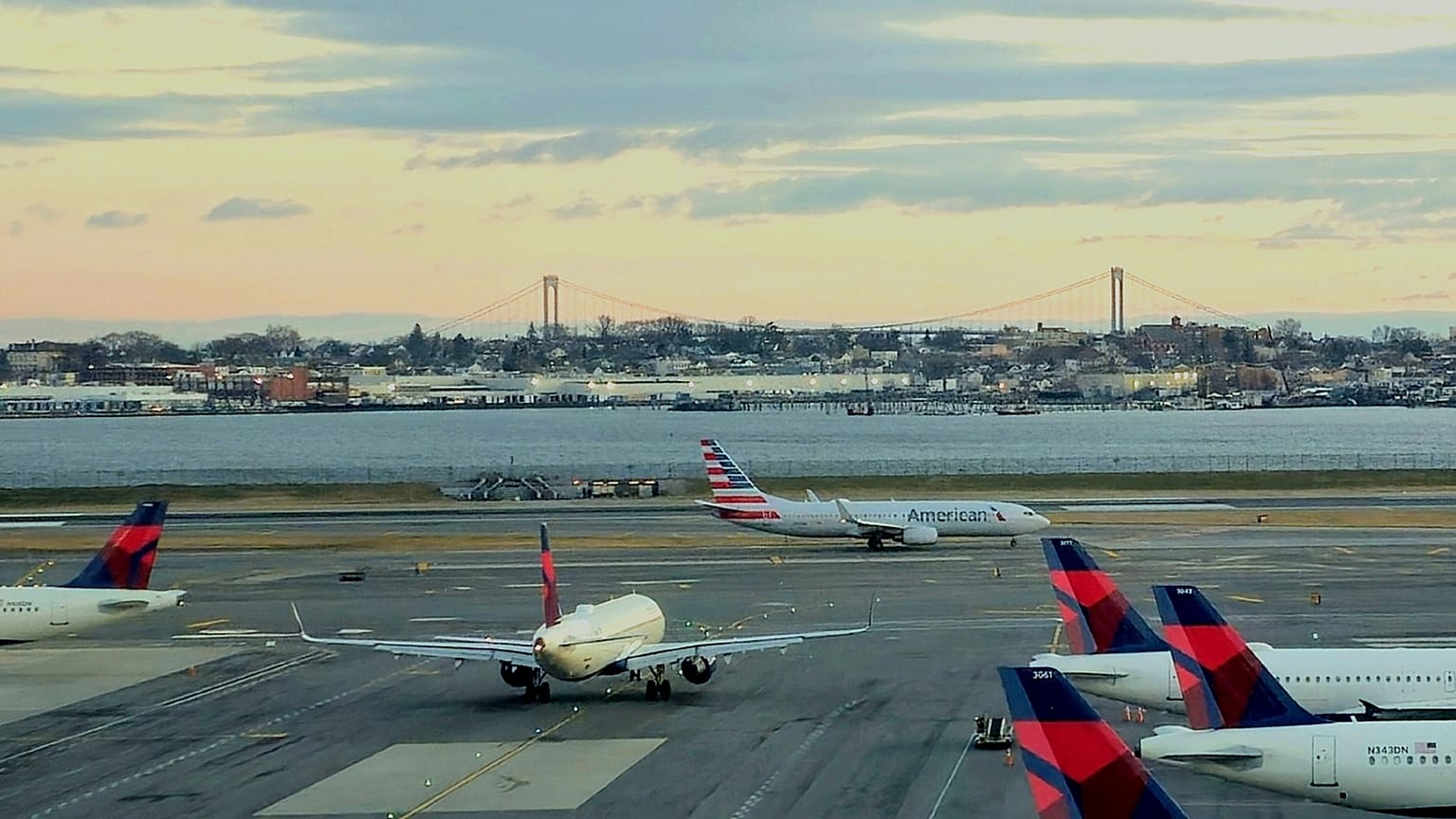Major carriers, including Delta, United, American and Southwest, are offering refunds and fare waivers.
More than 10,000 flights were delayed and nearly 3,000 cancelled across the United States on Sunday, leaving hundreds of thousands of travellers stranded as the government shutdown entered its sixth week.
With Thanksgiving – one of the busiest travel periods of the year – fast approaching, the travel crunch comes at an inopportune time for the industry.
While the Senate voted late on Sunday to advance a bill to end the shutdown, US Transport Secretary Sean Duffy has cautioned that the chaos won’t clear overnight. Even with a deal on the horizon, he said it will take time for the nation’s air traffic control system to recover, meaning delays and cancellations could continue for days.
If you are a traveller affected by these disruptions, here is what you can do to rebook, claim a refund and adjust your travel plans.
Are travellers owed refunds or compensation for cancelled flights?
If you no longer want to take the trip or have found another way of getting to your destination, the airline is legally required to offer a refund, even if you bought a non-refundable ticket. It doesn’t matter why the flight was cancelled.
You are also entitled to a refund for your bag fees, seat upgrades and other extras you didn’t get to use.
Unlike Europe, however, US airlines are not required to pay additional cash compensation or cover lodging and meals for passengers who are stranded, even if a flight cancellation or a severe delay is the airline’s fault.
That said, each airline is different. The US Department of Transportation runs a website where travellers can see the commitments each carrier makes for refunds and other expenses when flights are cancelled or significantly delayed.
What are airlines offering?
Currently, only domestic flights are affected. International services largely continue as scheduled. Major US airlines have felt the greatest impact, but each has also introduced flexible policies to help passengers manage cancellations and delays.
American Airlines said it would “proactively reach out” to affected customers and allow penalty-free changes or refunds. It is cancelling more than 200 flights per day but keeping long-haul and hub-to-hub routes running.
Delta Air Lines extended its travel advisory to all 40 airports affected by the flight reduction orders. Passengers booked between 7 and 14 November can rebook for travel through 21 November without paying a fare difference, or they can cancel for a full refund. That includes basic economy tickets.
United Airlines has issued a waiver covering flights out of 10 airports – including Hong Kong International Airport – between 6 and 13 November. Travellers can rebook within six days of their original date or cancel for a full refund. The airline still expects to offer about 4,000 flights per day, even with up to 269 expected to be cut on Tuesday.
Southwest Airlines, which has cancelled more than 100 flights at 34 airports, is automatically rebooking passengers whose flights are cancelled. The airline also allows refunds or penalty-free rebooking for trips between 7 and 12 November.
Alaska Air Group, the parent company of Alaska Airlines and Hawaiian Airlines, popular options for long-haul flights and journeys to Hawaii, has issued a flexible travel waiver. Passengers booked between 7 and 14 November can rebook for travel through 21 November without paying a fare difference. Its international flights remain in service.
What else can I do if my flight is delayed or cancelled?
Before leaving for the airport, check the airline’s app or website to confirm your flight.
The Federal Aviation Administration (FAA) also keeps track of delays on its website.
If you are already at the airport, join the queue for customer service while also calling or messaging the airline online. You can also try contacting them on social media sites such as X, where many carriers respond quickly.
Most airlines will rebook you on the next available flight for free, but given the system-wide issues, you may want to consider other transport options such as trains, buses or car hire.
“As these problems expand the longer the shutdown drags on, it’s unlikely there will be one airline running on time if the rest of them are failing,” said Kyle Potter of Thrifty Traveller. “It’s going to affect the entire system over time.”
Why is this happening?
The FAA last week ordered airlines to cut 4 per cent of flights at 40 major airports because of staff shortages at air traffic control centres due to the government shutdown. Those cuts are expected to deepen to 6 per cent on Tuesday and reach 10 per cent by 14 November.
Staffing issues are also affecting 12 air traffic control towers nationwide. Duffy told CNN last week that the agency is between 1,000 and 2,000 controllers short of full staffing. He added that retirements have jumped from about four a day before 1 October to as many as 15 to 20 a day since the shutdown began.
Airlines for America, which represents the major US carriers, estimates that since October, more than four million passengers have had their travel plans disrupted.
The chaos could also cost the US about €500 million per day if the situation continues into Thanksgiving week, one of the country’s busiest travel periods, when millions fly to visit family and friends.


















